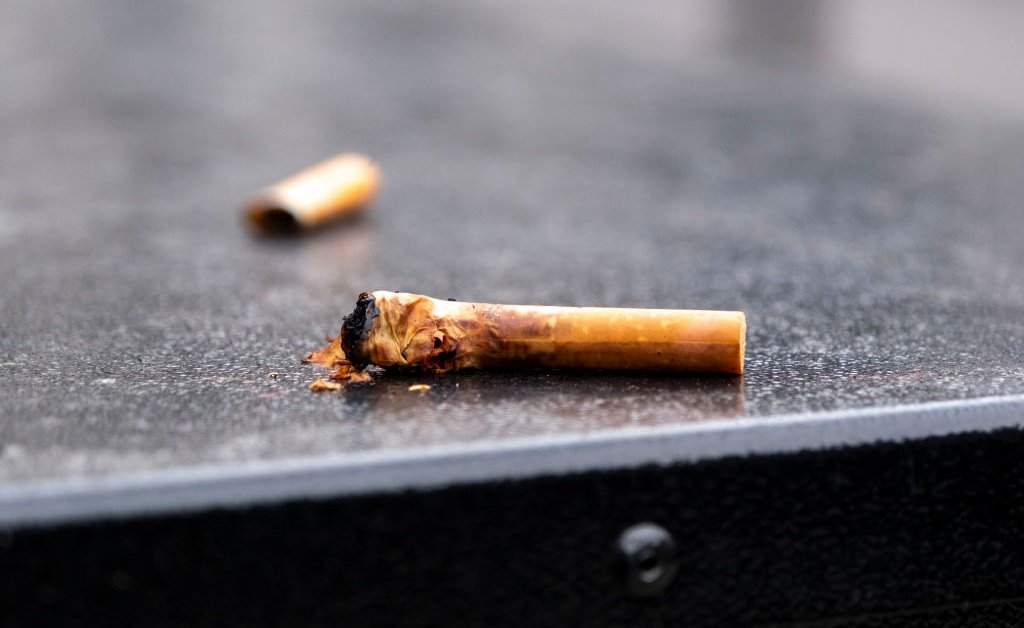The U.K. House of Commons voted Tuesday to advance the “Tobacco and Vapes Bill” that would make it illegal for anyone born in 2009 or beyond to buy tobacco and add restrictions to vaping. Legislators voted in favor of the bill in a 383- to-67 vote.
The bill would amount to an effective lifetime ban on smoking for those under the age of 15 and has now moved forward from its second reading to the committee stage.
“This isn’t about freedom to choose, it’s about freedom [from] addiction,” said Minister Andrea Leadsom during the debate Tuesday.
The bill was backed by Conservative Prime Minister Rishi Sunak, who has referred to tobacco as “the single biggest entirely preventable cause of ill-health, disability, and death.” Around two-thirds of smokers start to smoke before the age of 18, and there are an estimated 90,000 regular smokers aged 11 to 15, according to Public Health England, which has a goal of creating a tobacco-free generation by 2025.
The bill garnered support from lawmakers from both the opposition Labour and ruling Conservative party, though some Tories broke rank with Sunak. Former Prime Ministers Liz Truss and Boris Johnson had both opposed the bill, with Johnson describing it as “nuts” and Truss calling it “profoundly unconservative.”
“I think it actually risks making smoking cooler. It certainly risks creating a black market and it also risks creating an unmanageable challenge for the authorities,” Conservative lawmaker Simon Clarke told BBC radio before the vote.
Health officials say that because of tobacco’s addictive nature, preventing young people from picking up the habit could save millions of lives. “Smoking kills and causes harm at all stages of life from stillbirths, asthma in children, stroke, cancer to heart attacks and dementia,” Public Health Minister Andrea Leadsom said in a statement. “This bill, if passed, will have a substantial impact—preventing disease, disability and premature deaths long into the future.”
Tobacco causes approximately 75,000 preventable deaths per year in the U.K and over 500,000 hospital admissions.
Victoria Atkins, the U.K.’s secretary of state for health and social care, told the House of Commons that the bill was intended to prevent people from ever getting addicted to tobacco products in the first place. “The premise behind this is to stop the start,” said Atkins on Tuesday. “It is the only product that if consumed as the manufacturer intends, will kill two-thirds of its long term users.”
She also emphasized that the bill is not meant to demonize people who smoke, and will not prevent people who are already smoking from being able to purchase tobacco products. “It will not affect current smokers’ rights or entitlements in any way,” she said.
Nevertheless, some parliament members were concerned about the practical implications of such a ban. “When I look at this ban I question whether it’s going to work,” said Conservative MP Jake Berry. Berry cited data showing that more young people in the U.K. have tried marijuana than tobacco, despite only marijuana being banned. “If bans worked, no child would have ever tried cannabis,” he said.
Under the legislation, officers would get new powers to issue fines to shops selling tobacco or vapes to children. The legislation also involves new restrictions on the sale of vapes to make them less appealing to children. One in five children in the U.K. has tried vaping despite it being illegal for under-18s, according to U.K. government data.
Read More: How Juul Hooked Kids and Ignited a Public Health Crisis
If the bill passes, the U.K. will have the world’s only generational smoking ban, and one of the strictest anti-smoking laws. The legislation was inspired by a similar law in New Zealand that passed in December 2022 but was scrapped in February this year after a new government led by the conservative Prime Minister Christopher Luxon was sworn in.
At the time, the New Zealand legislation was the world’s first generational smoking ban.
Smokers in the U.K. cost their government approximately £14.7 billion ($18.3 billion) between health care costs and other social services compared to the £10 billion ($12.5 billion) it collects in tobacco specific taxes, according to the Office for Budget Responsibility.
Some ministers voiced Tuesday their belief that future generations would thank them and ask why the smoking ban was not implemented sooner. “We need to have the guts to create the first smoke-free generation across the United Kingdom,” said Leadsom.


